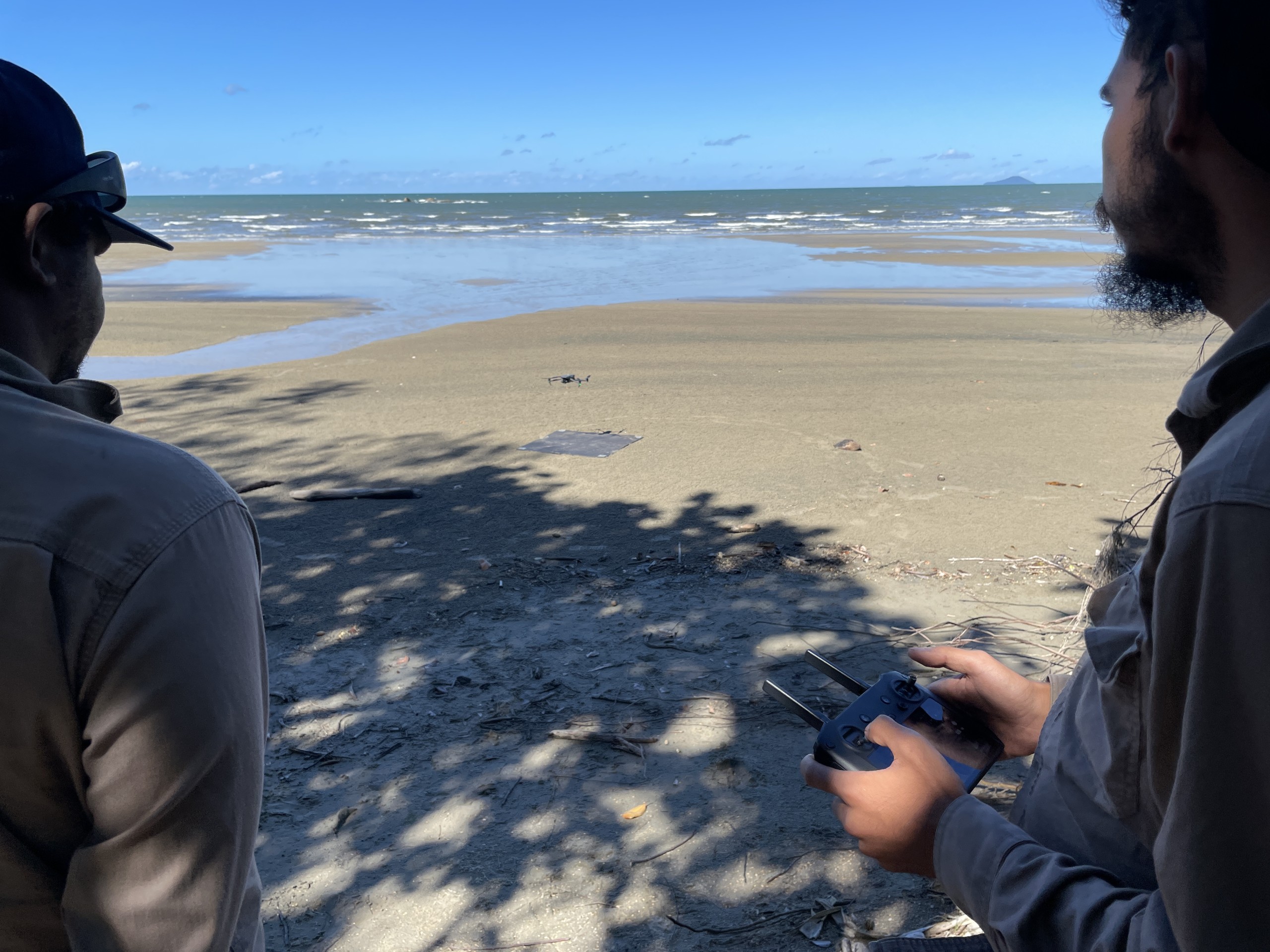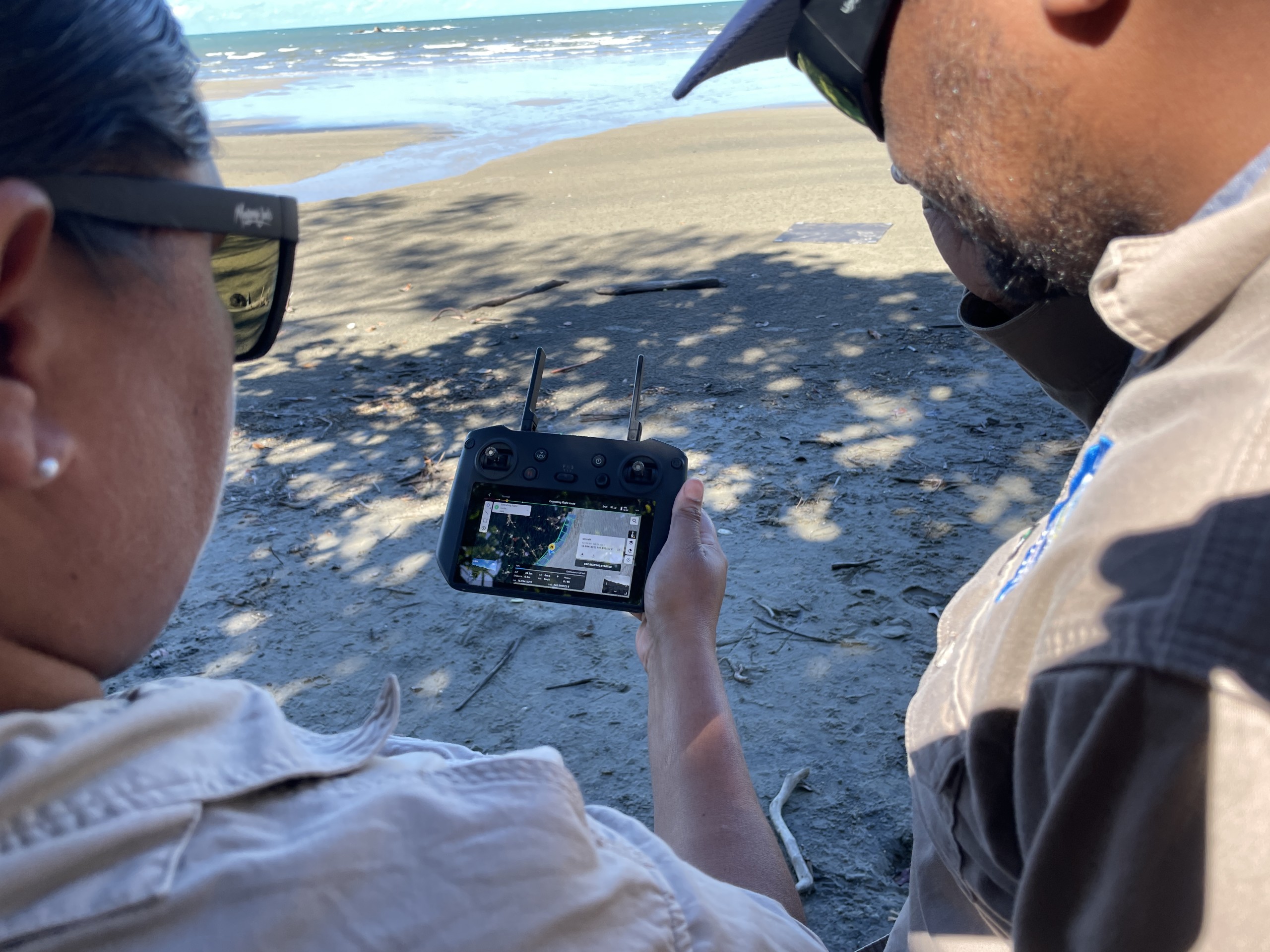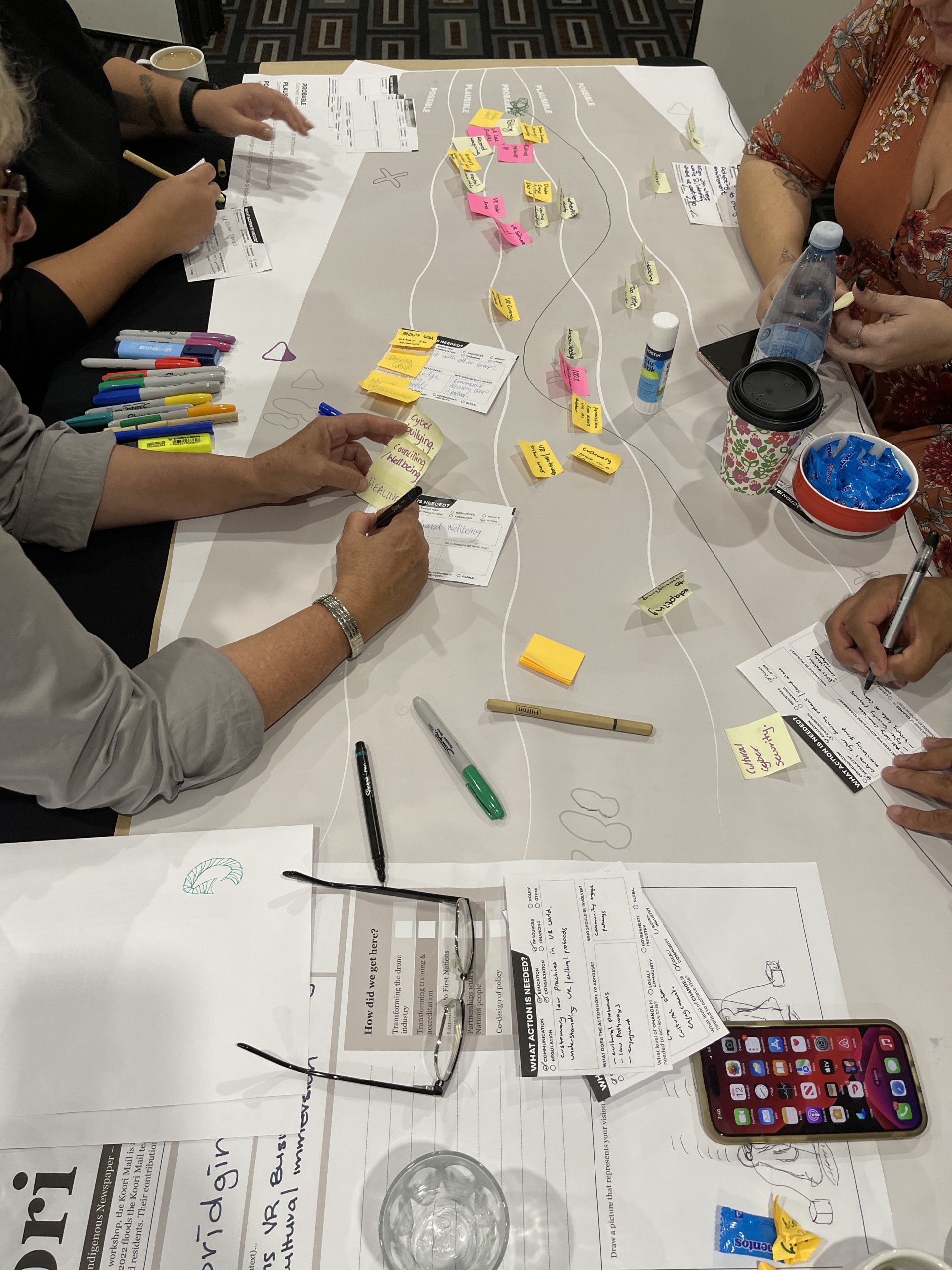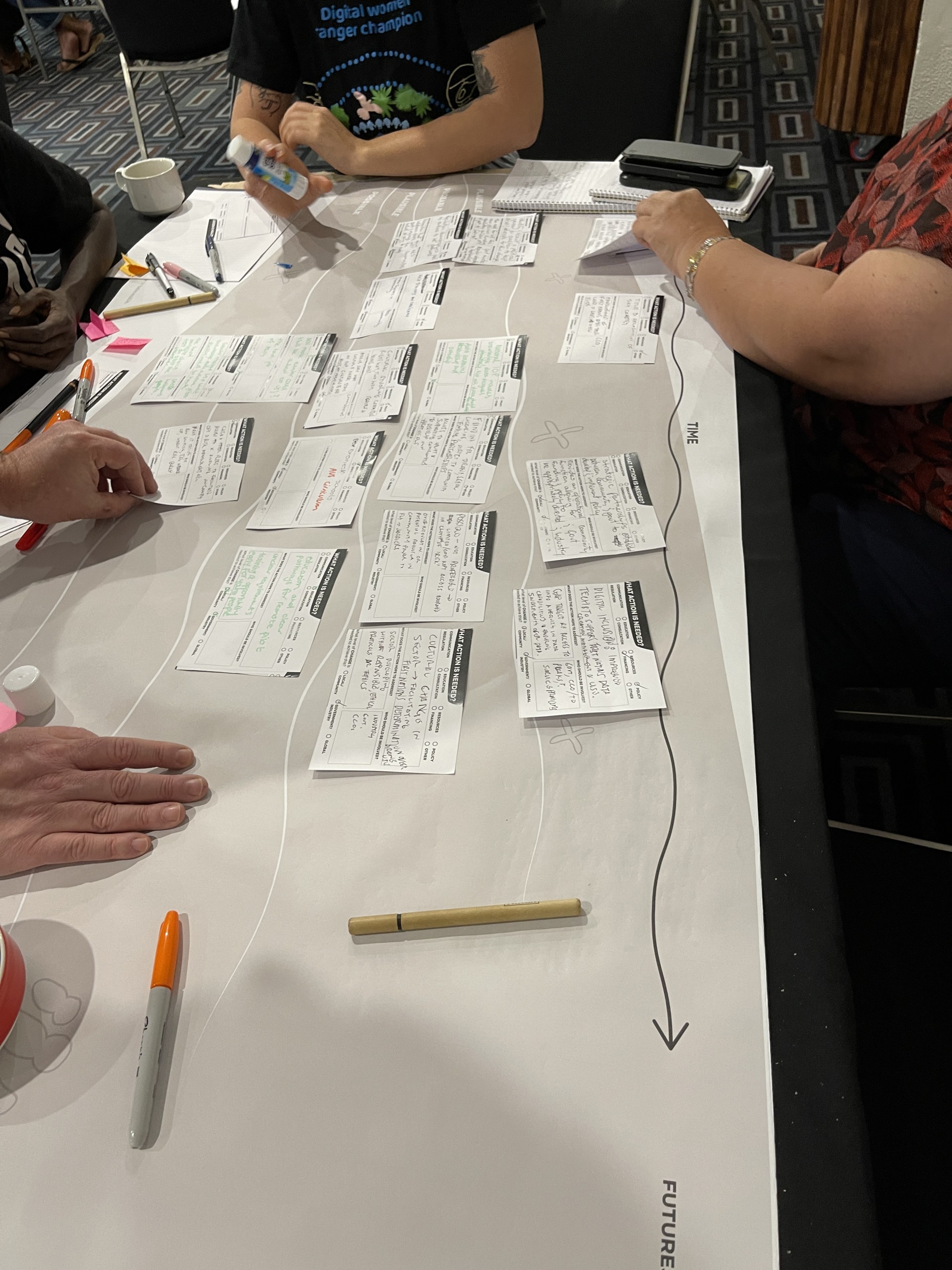First Nations drones policy and partnerships.

Background
The Department of Infrastructure, Transport, Regional Development, Communications and the Arts (DITRDCA) reached out to us to support them in improving drone policies to better support Closing the Gap outcomes. The project is formed from the perspective that drones may have great potential in providing opportunities for managing and maintaining connection to Country, providing training and employment opportunities, remote health, and opportunity for self determination in terms of data collection, among other things. However, there are also challenges presented by drones – including around trying to get more culturally appropriate (or responsive) training and licencing regimes, or where drone operators may not seek appropriate permissions or use appropriate protocols for use on Country.
This project is seeking to learn from experience, develop partnerships with organisations that might be interested, and help make change to improve drone policy to improve those things or build on work already occurring in this space.
Opportunity for Futures
A key objective of the project is to develop sustainable partnerships with First Nations peoples, communities and organisations who are interested in or impacted by drones and drone use. Supporting government departments in this endeavour, via a decolonial and culturally responsive lens aims to reduce harm and support the development of safe and meaningful engagement.
Approach
There were three key parts to this project: research and early conversations; review of outcomes and design of workshop; and the forum and outcomes, including learnings for government. We drew on our extensive research into decolonial practices, techno-colonialiasm and our expertise in designing and facilitating engaging conversations and stakeholder engagements.


